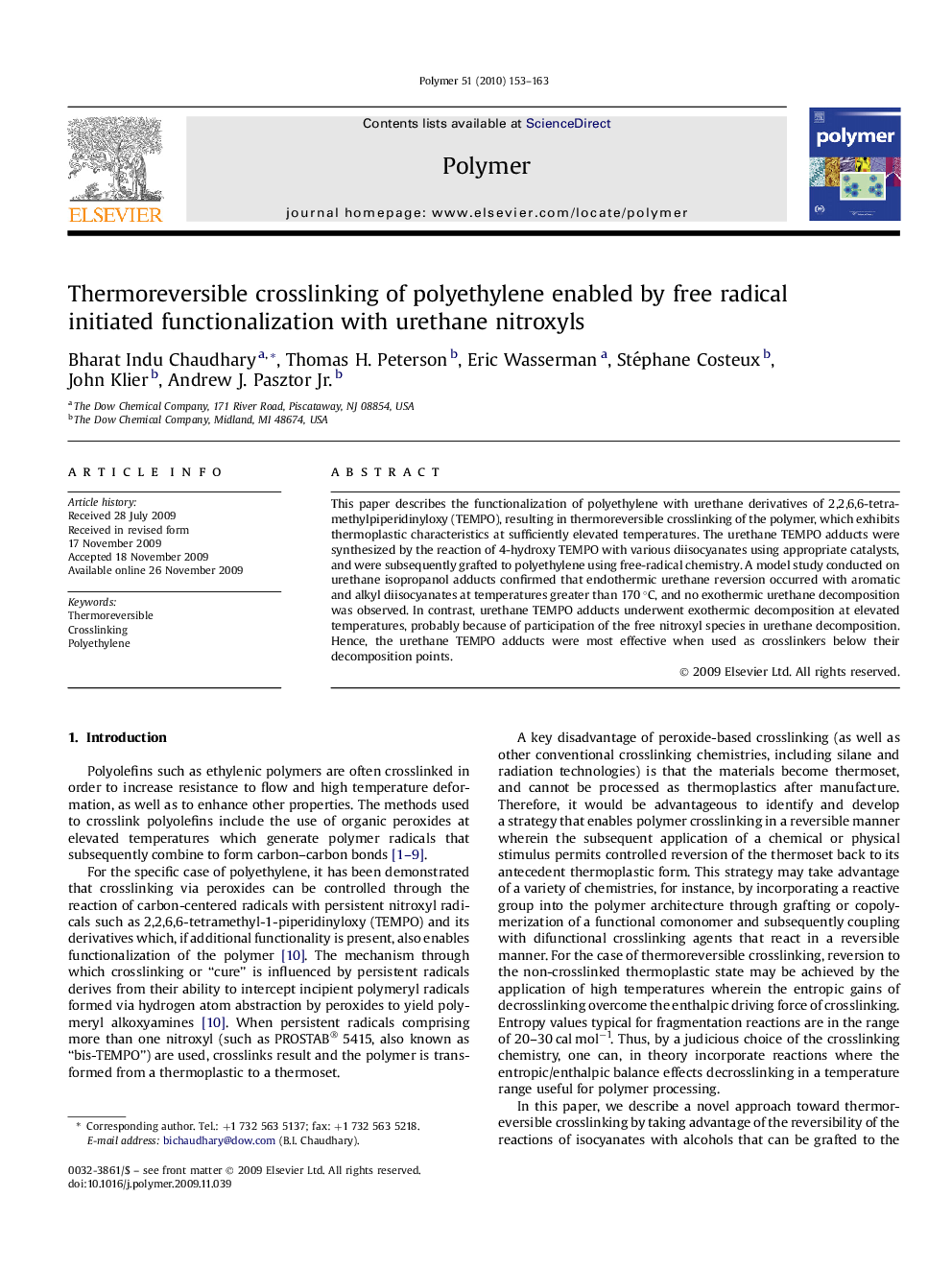| Article ID | Journal | Published Year | Pages | File Type |
|---|---|---|---|---|
| 5186951 | Polymer | 2010 | 11 Pages |
This paper describes the functionalization of polyethylene with urethane derivatives of 2,2,6,6-tetramethylpiperidinyloxy (TEMPO), resulting in thermoreversible crosslinking of the polymer, which exhibits thermoplastic characteristics at sufficiently elevated temperatures. The urethane TEMPO adducts were synthesized by the reaction of 4-hydroxy TEMPO with various diisocyanates using appropriate catalysts, and were subsequently grafted to polyethylene using free-radical chemistry. A model study conducted on urethane isopropanol adducts confirmed that endothermic urethane reversion occurred with aromatic and alkyl diisocyanates at temperatures greater than 170 °C, and no exothermic urethane decomposition was observed. In contrast, urethane TEMPO adducts underwent exothermic decomposition at elevated temperatures, probably because of participation of the free nitroxyl species in urethane decomposition. Hence, the urethane TEMPO adducts were most effective when used as crosslinkers below their decomposition points.
Graphical abstractDownload full-size image
